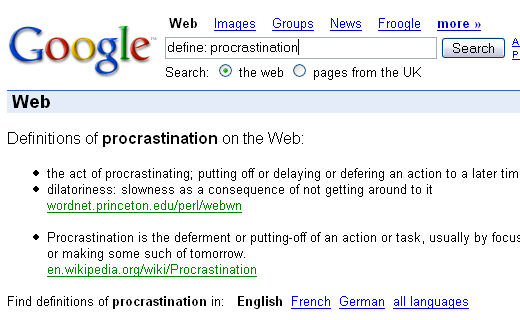Having conducted a small research on such meetings, I've found out the following positive outcomes of speaking up:
Regain your interest in the subject
Some speakers have a real talent of giving such a monotonous speech that it makes even the most exciting subject sound unbearably boring. What usually happens then is that the audience falls into a pattern of gradual boredom. What this really means is that the more of monotonous speaking we hear, the more distant we become from the subject. The audience may genuinely try to stay focused, but will eventually fail to do so unless this pattern is somehow interrupted.
Skilled speakers know this and try their best to make their speeches interesting and dynamic. Even if they're facing a long paragraph which they know will sound boring, they interleave the theory with some examples or diagrams – just about any different kind of interaction helps.
Now, if you weren't particularly lucky with the skill of your speaker, you have to break the boredom pattern yourself. And you do this – you guessed right! – by speaking up. Ask a question or state your opinion, this will make a natural pause in the speaker's monologue, and thus will break the pattern audience is getting caught up in.
Just to motivate yourself more, think of yourself as of hero. Simply imagine there for a second, that you could be the last and only hope the whole audience might have! If you don't break the pattern, nobody else will. By asking an intelligent question, you will regain your interest in the subject and relieve everyone by helping them focus on the topic and get some useful answers from the speaker.
Stay alert by interacting
When you realise you can't follow the topic anymore, it becomes personal. No matter how the rest of the audience feels, you have to act. This means that you should be even more interested and motivated to speak up and become alert by doing so. Not only will you break the boredom pattern, but you will also express your opinion or ask a valuable question. After all, if you lost track of the discussion anyway, any question will be good because it will bring you back to the topic. And yes, if the meeting isn't boring at all, it is still okay to ask questions – so go on and ask one just for the fun of it. Learn something new and score some points with the speaker by expressing your interest in the subject.
Please be conscious about the fact that negative talks alert more than positive ones! Once you realise this, you can actually use it to your advantage.
Generally, people take negative opinions or news much more seriously than positive ones. So if you're starting a verbal attack on the speaker, you will become alert very quickly (think twice though, is it worth starting a fight with this person).
What's even more effective, is that if someone else (not necessarily the speaker) starts an attack on you. Now, that will make sure you become more alert that ever!
This negativity rule stretches further than just some negative talks. For instance, if you discuss a topic which worries you – be it one of your responsibilities, something you've forgotten to act on, or simply a very complex task coming up, this will alert you just as good. Trust me, talking about such things will never make you sleepy!
The best approach for speaking up
I believe it is best for you to do your homework and prepare a couple of questions before the meeting. This way, you know you'll have them to ask no matter how bored you get during the speech or how tired you feel to think about anything. Try and come up with general but useful questions, such ones that can be asked at almost any time during the meeting, sound reasonable and provide real value to yourself and others, when and if the answers are given. Write these questions down. If someone sees you with a list of questions, it will only add more to your positive look – you will be demonstrating not only your readiness, but also a certain commitment to the upcoming meeting, which is always a good thing.
If you don't have any questions prepared for the meeting, it's okay. But you have to make sure you use the first few minutes (maybe hours, depending on your ability to listen and the skill of the speaker) of your genuine interest in the subject to jot down few key notes and make up related questions. Again, people seeing you do this will only be impressed by how determined and organized you really are.
What I find most useful is making my point with 3-5 sentences, and then finishing off with asking one of the prepared questions. The overall impact of this is that you're providing audience with enough background to switch from the possible boredom pattern, and to make things even better, you also challenge their minds by asking an intelligent, thoughtful question. This approach is also likely to please the speaker too, as it will demonstrate your interest on the topic, and not a simple act of questioning the authority of the speaker.
What are your experiences with dull and long meetings? Feel free to share the knowledge, and I'll be happy to update this entry right away.

